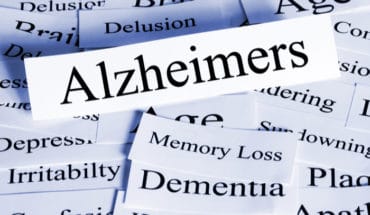Protein could help detect delayed concussion recovery: Melbourne researchers have discovered a blood protein that could help detect which children will experience ongoing concussion symptoms more than two weeks after an injury.
The research, led by Murdoch Children’s Research Institute (MCRI) and published in the Journal of Neurotrauma, found the protein was a potential biomarker for delayed recovery from concussion in children.
For the study, blood samples were collected from children, aged five-18 years, who presented to the emergency department at The Royal Children’s Hospital less than 48 hours after a concussion.
Levels of the protein alpha-1-antichymotrypsin (alpha-1-ACT) were significantly lower in children with a delayed recovery.
MCRI researcher Ella Swaney said with concussion being a growing public health concern, there was an increasing need to develop a tool that could contribute to identifying those at risk of delays to recovery.
Of the four million children who experience a concussion each year, 25-30 per cent will have long-term symptoms and about half will never seek out medical care. Symptoms including headaches, difficulty remembering and sensitivity to light can last for months while mental health conditions can persist for several years.
“Delayed recovery from concussion spans emotional, behavioural, physical and cognitive symptoms, which can affect the well-being of the child, delaying their return to school and sport,” Ms Swaney said.
“Early detection of children at risk of delayed recovery is crucial to ensure effective treatment and targeted follow-up.”
MCRI Professor Vicki Anderson said this small study, involving 80 children, was the first in human trial to identify that alpha-1-ACT could contribute to the early detection of those who will experience a delayed recovery from concussion.
“If the finding holds up in larger studies, the discovery could contribute to acute clinical management by providing clinicians with an acute marker to guide more timely and targeted treatments to children most likely to experience long-term problems,” she said.
In 2023, a vast body of international research, with major contributions from MCRI researchers, took a deep dive into all aspects of concussion management.
The updated consensus findings aimed to change how concussion was viewed across sporting codes, recreational sport and within medical clinics and emergency departments by overhauling exercise and rehabilitation methods and upgrading return-to school and return-to-sport protocols.
Another concussion management tool, the HeadCheck App, designed by child concussion experts at MCRI in collaboration with The Royal Children’s Hospital and the Australian Football League (AFL), also helps recognise concussion early and manage recovery.
Researchers from the University of Melbourne, Macquarie University’s Australian Proteome Analysis Facility, Austin and Cabrini Hospitals, Johns Hopkins All Children’s Institute for Clinical and Translational Research and Hopkins University also contributed to the study findings.
Publication: Ella EK Swaney, Franz E Babl, Vanessa C Rausa, Nicholas Anderson, Stephen JC Hearps, Georgia Parkin, Gene Hart-Smith, Thiri Zaw, Luke Carroll, Michael Takagi, Marc L Seal, Gavin A Davis, Vicki Anderson and Vera Ignjatovic. ‘Discovery of alpha-1-antichymotrypsin as a marker of delayed recovery from concussion in children,’ Journal of Neurotrauma. DOI: 10.1089/neu.2023.0503
*The content of this communication is the sole responsibility of the Murdoch Children’s Research Institute and does not reflect the views of the NHMRC.
Funding
VA and FEB received grant funding from the MRFF, NHMRC and The Royal Children’s Hospital Foundation.
- New lipid-based pathway discovered as key to memory formation - 25th June 2025
- Crucial link could explain how Alzheimer’s takes hold - 25th June 2025
- Understanding Your Mind Can Improve Daily Life - 25th June 2025







